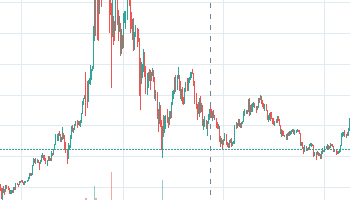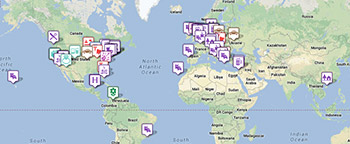A cryptocurrency is a digital or virtual currency that is protected by encryption, making faking and double-spending practically impossible. Many cryptocurrencies are built on blockchain technology, which is a digital database enforced by a worldwide network of computers.
This is more of a formal explanation, however, if you still don’t really understand what these coins mean, all the crypto questions answered on this page.
According to CoinMarketCap.com, a market research website, more than 6,700 distinct cryptocurrencies are traded publicly. And cryptocurrencies continue to grow in popularity, with initial coin offerings, or ICOs, being used to raise funds. According to CoinMarketCap, the overall value of all cryptocurrencies was more than $2.2 trillion on April 13, 2021, and the entire value of all bitcoins, the most popular digital currency, was around $1.2 trillion.
How does it work?
A cryptocurrency is a digital, encrypted, and distributed medium of exchange. There is no central body that administers and maintains the value of a cryptocurrency, unlike the US dollar or the Euro. Instead, these responsibilities are divided throughout the internet among the users of a cryptocurrency.
Cryptocurrency can be used to make purchases, but it is not yet widely accepted as a means of payment. Although a few online businesses, such as Overstock.com, take Bitcoin, it's not really the norm. Nevertheless, this could change soon.
Other than Bitcoin, we'll look at some of the most popular digital currencies below.
Ethereum
Ethereum, the first Bitcoin alternative, is a cornerstone platform that allows Smart Contracts and Decentralized Applications to be written and run without the need for third-party downtime, fraud, control, or intervention.
Ethereum's goal is to establish a distributed suite of financial goods that anyone in the world, regardless of nationality, ethnicity, or beliefs, can use for free. This element heightens the ramifications for those in some countries, as those without access to governmental infrastructure and identity can obtain bank accounts, loans, insurance, and a number of other financial items.
Litecoin
Litecoin, which debuted in 2011, was one of the first cryptocurrencies to follow in Bitcoin's footsteps, and has been termed the "silver to Bitcoin's gold." Litecoin is based on an open-source worldwide payment network that is not managed by any central authority and employs the "script" proof of work, which can be decoded using consumer-grade CPUs.
Despite Litecoin is similar to Bitcoin in several areas, it has a quicker block creation rate and thus a faster confirmation time for transactions. A growing number of retailers, in addition to developers, accept Litecoin. Litecoin had a market capitalization of $10.1 billion and a per token value of $153.88, making it the world's sixth-largest cryptocurrency in January 2021.
Cardano
Cardano is an “Ouroboros proof-of-stake” cryptocurrency developed by engineers, mathematicians, and cryptography professionals using a research-based method.
Cardano aspires to be the world's financial operating system by creating decentralized financial products in the same way that Ethereum does, as well as providing solutions for chain interoperability, voter fraud, and legal contract tracing, among other things. Cardano has a market value of $9.8 billion as of January 2021, and one ADA is worth $0.31.
Monero
Monero is a safe, anonymous, and untraceable cryptocurrency. This fully accessible cryptocurrency was first released in April 2014, and it quickly gained popularity among cryptography fans.
The development of this coin is entirely funded by donations and driven by the community. Monero was created with a heavy focus on transparency and stability, and it uses a technology called "ring signatures" to provide perfect secrecy. Monero has gained a shady reputation as a result of its extraordinary security systems, and it has been tied to illegal enterprises all over the world.



 Updated every 10 minutes
Updated every 10 minutes


